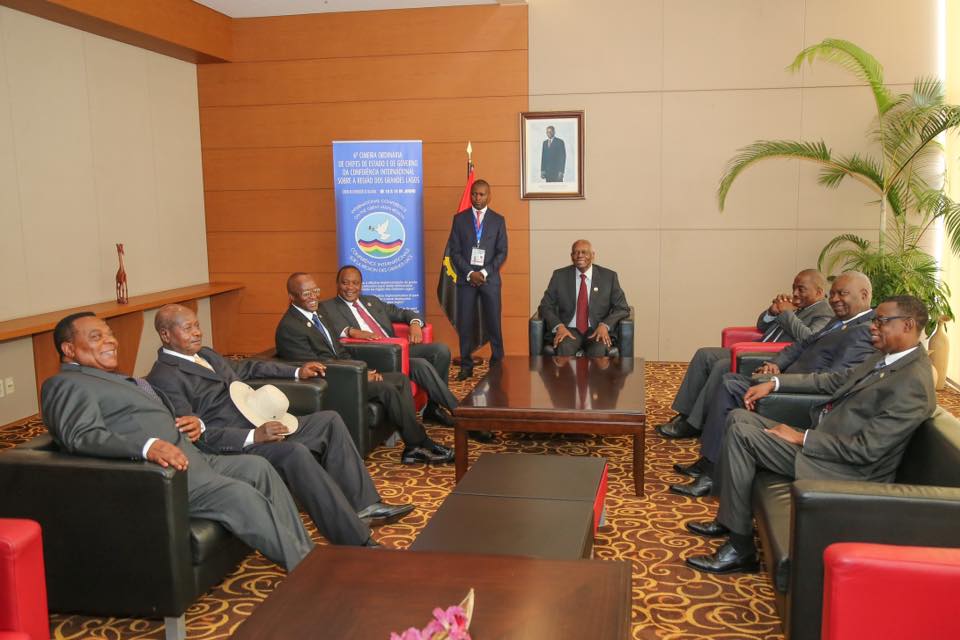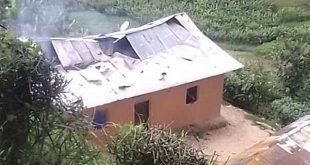
Luanda, Angola | AFP |
Angolan President Jose Eduardo dos Santos, who has ruled for 37 years, will stand down before next year’s general election, state radio said Friday citing sources in the ruling MPLA party.
The autocratic Dos Santos, 74, became president in 1979, making him Africa’s second-longest serving leader — one month short of Equatorial Guinea’s Teodoro Obiang Nguema.
His reign has seen the end of civil war and an investment boom, but has also been criticised as secretive and corrupt with Angola’s citizens suffering grim poverty as his family became hugely wealthy.
National Radio of Angola said that Defence Minister Joao Lourenco would take over as MPLA leader, in news confirmed to AFP by Joao Pinto, a senior member of the party.
“The president will not be a candidate and he already has a successor,” Pinto told AFP.
“It will be Joao Lourenco, who will be presented to members of the party on December 10 when we celebrate the party’s anniversary.”
At a meeting of the MPLA (People’s Movement for the Liberation of Angola) on Friday in Luanda, Dos Santos launched his party’s campaign for the election, but he did not address whether he would seek a new term.
“Our goal is to win the election,” he told delegates. “The key to success will be the discipline and the unity of all our candidates.”
Authoritarian leader
In March, Dos Santos made a surprise announcement that he would step down in 2018, but has since given no further details about any resignation plan.
After constitutional changes in 2010, Angola does not directly elect a president, rather the leader of the winning party automatically becomes head of state.
In August, Dos Santos was re-elected head of the MPLA, extending his mandate by up to five years if the party wins the election, as expected.
The MPLA on Thursday issued a statement denying widespread reports that the veteran leader was seriously ill.
“Dos Santos has personally directed the work of the MPLA and the state,” it said.
“The MPLA party, which supports the Angolan government, warns all citizens to be aware of the circulation of false information against Angola on social media.”
Angolan rapper and political activist Luaty Beirao, who was jailed for several months under Dos Santos’s regime, said he was “very satisfied” at the prospect of his leaving office.
“Angola is the hostage of his decisions and whims and, fortunately, he has decided on his own that this was enough,” he told Portuguese news agency Lusa, calling for “new faces and new blood in Angola”.
Beirao and 16 others were arrested last year for “acts of rebellion” for attending a book club meeting where one of the works discussed was about non-violent resistance to repressive regimes.
They were granted amnesty in October in a case that attracted international attention to rights issues in Angola.
New era
The end of Dos Santos’s regime will shake up Angola, where he has been a looming presence in daily life longer than most people can remember, exercising almost total authority over government, politics, media and business.
He was sworn in 1979 following the sudden death from cancer of Angola’s liberation president Agostinho Neto.
Both his eldest daughter Isabel and his son Zenu have been spoken of as possible future presidents.
Isabel, 43, is a British-educated billionaire businesswoman, dubbed the richest woman in Africa.
Forbes magazine values her fortune at $3 billion, based on her stakes in Unitel, Angola’s largest phone operator, Portugese oil and gas giant Galp Energia, and in banks in both countries.
Also on Friday in Luanda, a trial opened of 37 men accused of planning a coup against Dos Santos in January.
The men, said to be former UNITA fighters, are alleged to have plotted armed attacks on the presidential palace and the public television and radio station. They deny the charges.
 The Independent Uganda: You get the Truth we Pay the Price
The Independent Uganda: You get the Truth we Pay the Price



